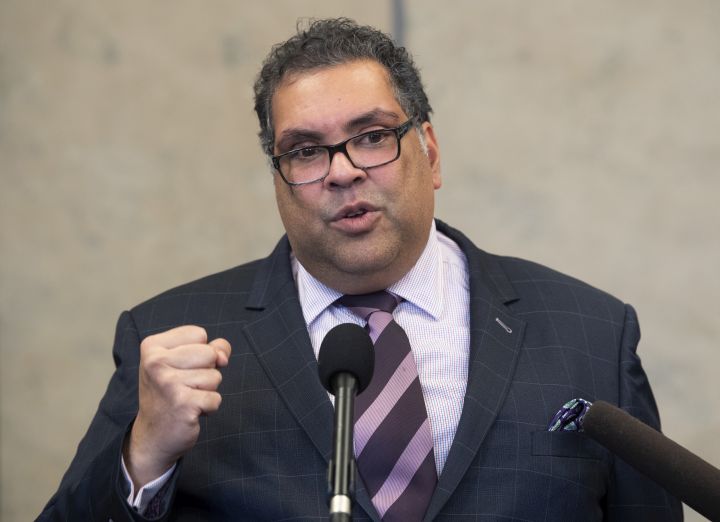All three orders of government are going to have to sit down together to solve the financial challenges of Canadian municipalities, according to Calgary Mayor Naheed Nenshi.

On Thursday, Calgary city council’s intergovernmental affairs committee was given an update on the Federation of Canadian Municipalities’ request to the federal government for funding for municipalities.
That request is for $10 billion: $7.6 billion in direct aid and $2.4 billion for cities with a transit system. For the City of Calgary, that could amount to $370 million.
READ MORE: Edmonton mayor says funding situation for cities has become ‘more dire’
Coun. Evan Woolley is Calgary’s representative on the FCM and says while the pitch has been well received, there has also been some pushback.
“Most recently, the prime minister has been discussing that the Constitution requires this funding flows through the provinces,” he said.
“While the FCM and the city would be comfortable with this, we’re obviously concerned about the necessary negotiations and obviously prolonged delays that these agreements might take to get in place.”

Get daily National news
Nenshi said he’s nervous but optimistic at the same time.
“This is new, at least they are talking about it,” he said.
“Last week, it was very much, ‘Go talk to the other guy — you know, this is not our problem.'”
The Calgary mayor also lavished some praise onto Ontario Premier Doug Ford.
“He’s really taken a step forward by saying we have to have three parties at the table, and that’s what we’re looking for other premiers, including Premier (Jason) Kenney to do as well.”
Nenshi has said in the past that the City of Calgary could face a shortfall of up to $400 million because of a dramatic drop in city revenues.
Because of COVID-19, Calgary Transit has seen ridership levels drop by 80 per cent and the City of Calgary has lost revenue because it closed its recreation facilities.
“This has to be fixed, because if it’s not fixed, then cities will have anywhere from hundreds of millions to billions of dollars that they’ll have to make up next year to cover their deficit, which means massive tax increases or unsustainable cuts in services,” Nenshi said, adding that no one wants to see either of those two scenarios play out.







Comments